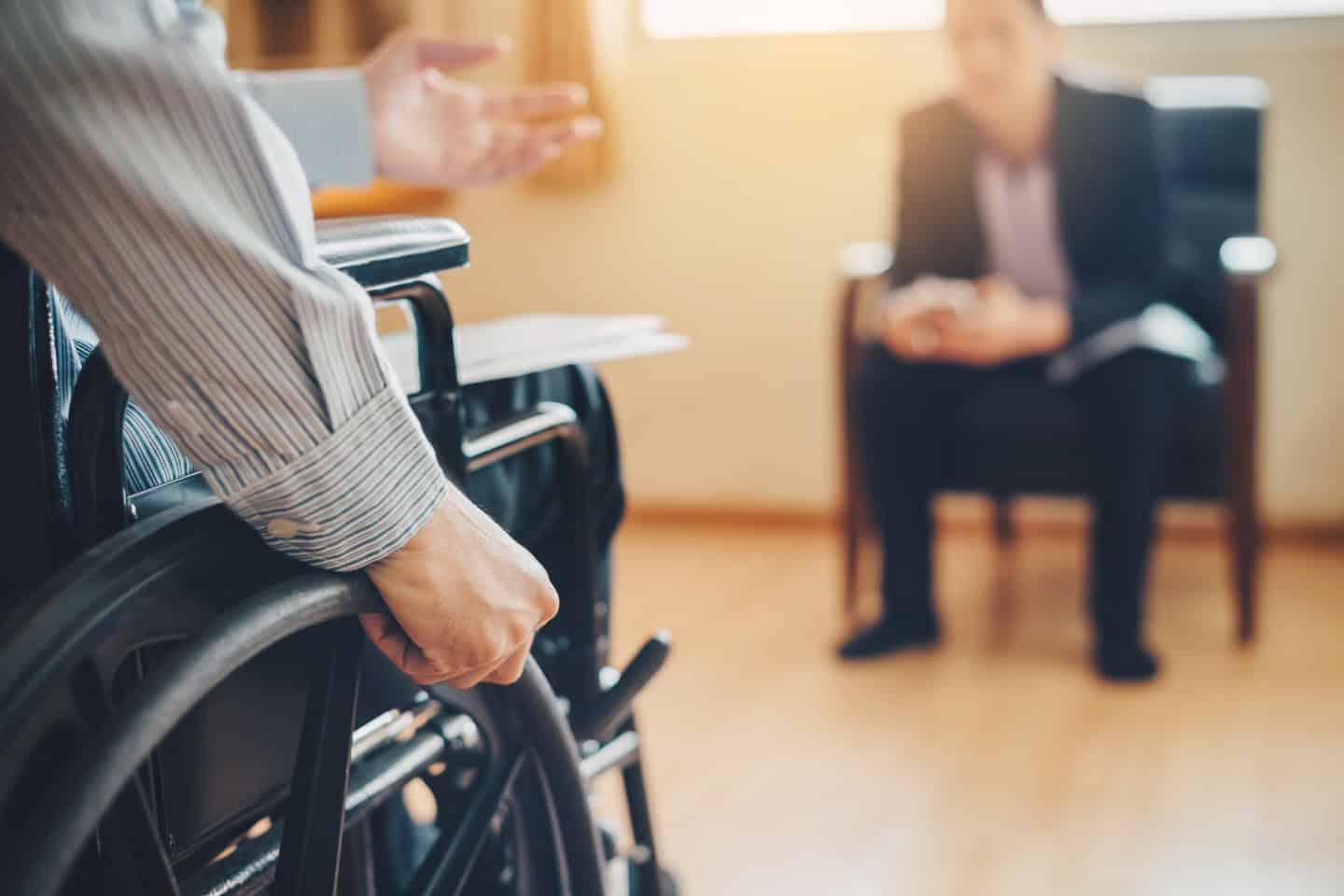
Spinal Injuries Association develops new counselling model with NHS
A new free counselling service for those with spinal cord injury and their friends and family has been launched in the southeast.
Spinal Injuries Association (SIA) has teamed up with NHS England to become part of its Southeast Spinal Cord Injury Transformation Project.
SIA has been offering free mental health support to its members up and down the country, but the new NHS partnership will allow for more work to be done across Buckinghamshire, Oxfordshire and Berkshire West, Frimley, Hampshire and Isle of Wight, Kent and Medway, Surrey Heartlands and Sussex.
Alongside the NHS, SIA has developed a referral pathway and triage service, provided additional qualified counsellors, and identified mental health partners within the Southeast, meaning more people with SCI and their families can benefit from this service and this model can be replicated nationally.
As a Trusted Legal Partner for the South East of England Bolt Burdon Kemp is extremely excited by this development and the support it will bring those with spinal cord injury in the South East.
Mental health crisis among SCI community
Earlier this year SIA carried out its annual ‘What Matters’ survey. The survey exists so they can identify the barriers preventing people with spinal cord injury and their loved ones from living a fulfilled life. As part of the survey respondents were asked about mental health, and almost half of all respondents said they experienced anxiety and/or depression.
Lack of specialised mental health services for people with spinal cord injury remains a serious concern as they work to rebuild their lives after injury. One respondent reported that their “weakened mental health has removed me from any kind of personal life” and that “more needs to be understood” by health and mental health professionals.
Sadly, patients continue to face long delays within the NHS for counselling and psychological support. One client of ours was advised they faced a wait of at least four to six months. That’s a long time to go without any support. Of course, private therapy is an option but unaffordable for many. On top of this, as detailed by the survey respondent above, many mental health professionals have limited knowledge of what life with a spinal cord injury is like and the impact these challenges can have on mental health.
As is often the case these days additional support is being provided by the charity and not-for-profit sectors who are stepping in to try and help people, and SIA is no different. SIA offers a national counselling service. This free service provides mental health and wellbeing support to any SIA members or their families. These could be directly related to the current situation or more generally to aspects such as relationship difficulties, issues around their injury or other things that they don’t feel able to talk through with their family or friends.
It is a wonderful thing mental health is more openly discussed these days; but there are still lots of people who struggle to ask for help and who are only able to do so when things get very serious.
In my experience it’s common for people whose mental health declines to see a physical decline at the same time. Whilst this is concerning for anyone, it is particularly dangerous for those with spinal cord injury for whom infection and pressure ulcers pose a significant and sometimes life-threatening risk.
The sooner people seek help, the better. As the saying goes ‘prevention is better than cure’. But of course, seeking help at any time should always be encouraged. I think it’s also important to reiterate this service is free and highlight that it’s available to those with spinal cord injury aswell as their family and carers because this is life-changing for them too. This ripple effect can have significant consequences and those who are providing support should be supported as well.
In signing off I am turning this blog over to Stephen Brookes, Counselling and Wellbeing Coordinator at the Spinal Injuries Association for his comments:
Any time your life changes, your mental health can suffer. But when you lose the capabilities, you once took for granted, things can feel particularly overwhelming. It’s no wonder so many people with spinal cord injuries experience mental health difficulties. A spinal cord injury affects virtually every system of your body, and every area of your life. Whether and how you work, leisure activities, your ability to hold your child, your relationships, your body image, and your fundamental sense of self may all change. Appropriate mental care after a spinal cord injury is vital for helping you manage your rapidly changing life.
The stigma around mental health conditions is changing, yet many people with spinal cord injury are reluctant to admit they need mental health care. The SIA counselling and wellbeing team know that mental health concerns aren’t all in your head and ignoring your pain won’t make it go away. The presence of psychological suffering is not something that has to be endured, so good quality mental health care is the best gift you can give yourself.
SIA has an in-house spinal cord injury specialist counselling service. Support is available on the phone or via video call, and we’re expanding our service to provide emotional support more quickly to everyone who needs it.
Therapy is delivered by qualified and registered counsellors who are spinal cord injured themselves and have the unique understanding of what you and your family may be experiencing. Because we know that all those who are spinal cord injured may need mental wellbeing support, the service is available for everyone, including friends, family, and caregivers.
If you know anyone that can benefit from the service, with their permission you can contact your SIA Regional Support Network Coordinator or via the support line: (0800) 980 0501. Alternatively, you can also self-refer directly via the SIA Webpage (select south-east) or via counselling@spinal.co.uk should link be unavailable.










